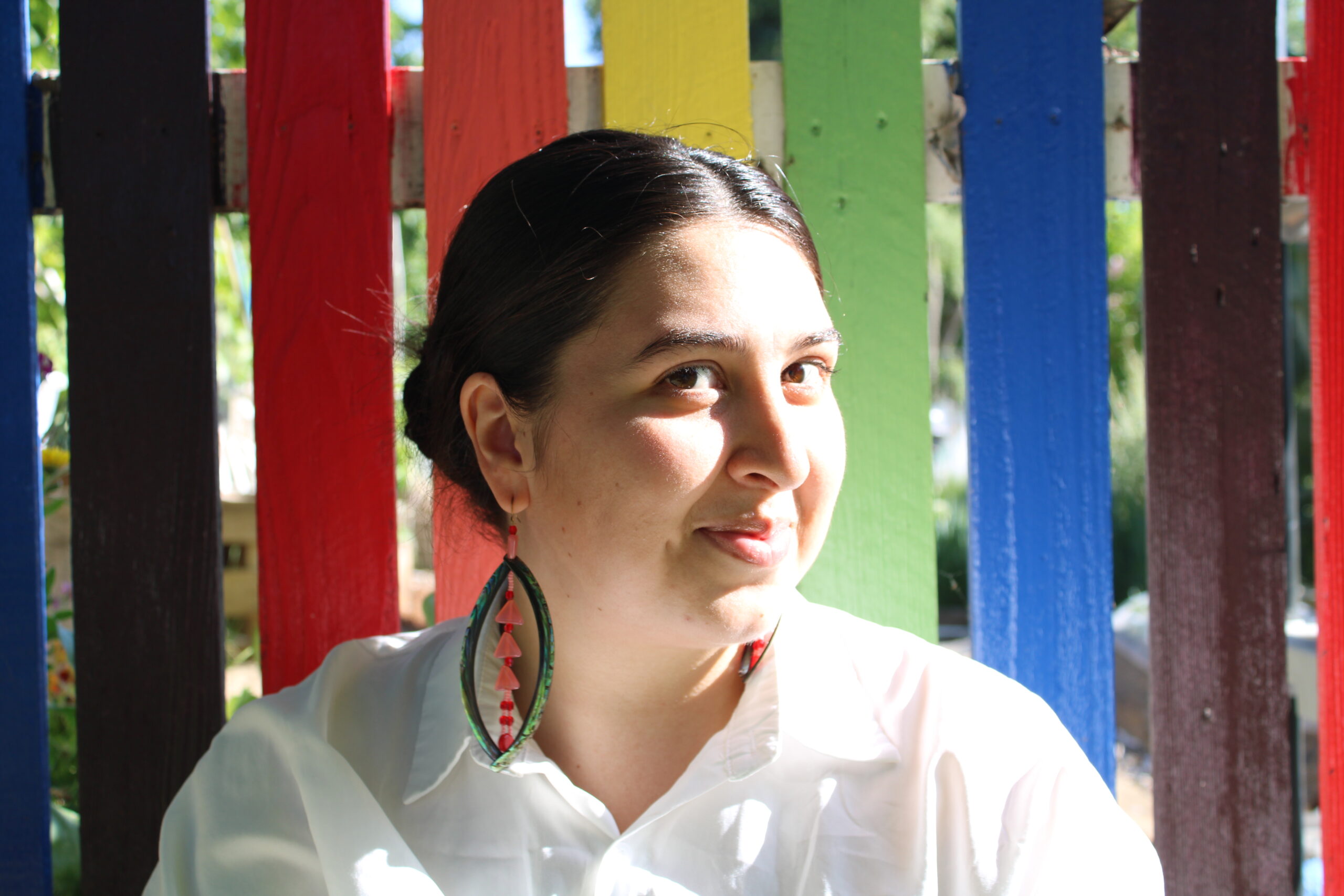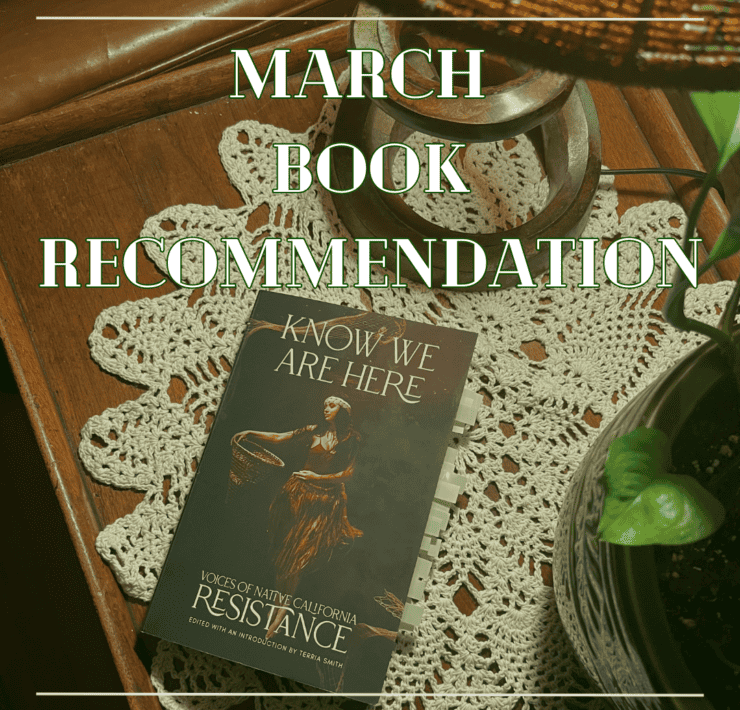
by Tavi Lorelle Carpenter
The Bay Area Book Festival occurred this last weekend that included a multitude of events that finished with an outdoor fair with book sellers, food, family activities and speaker series across four outdoor stages. Located in the Martin Luther King Jr. Civic Center park in downtown Berkeley, across from Berkeley High School, this outdoor fair was in full swing by the time I arrived around noon.
It was a perfect day, with the sun shining brightly and a cool breeze that kept everyone comfortable. I made my way to the Native California Stage to listen to Sara Calvosa Olson in conversation with Terria Smith about Sara’s wonderful book, Chími Nu’am: Native California Foodways for the Contemporary Kitchen published by Heyday Books in 2023. Chími Nu’am, which offers recipes for all four seasons, utilizes Native foodways across California to create unique and creative recipes using traditional California foods accessible for any home cook. I can personally attest to the yumminess of the Apple-Cider-Brined Turkey recipe. Though I substituted chicken for turkey, my friends and family (and me!) were delighted with how delicious and flavorful it made our roasted chicken! While there is always a celebration of food aspect to cookbooks, Chími Nu’am stands out for being incredibly community-oriented and dedicated to honoring tradition while creatively expanding on how we understand some of our oldest foods.
The title for the discussion at the Bay Area Book Festival was “Let’s Eat! Decolonizing Diets” slated to reflect on the important topic of indigenous food systems and how they are interconnected to culture, tradition, sovereignty and reconnection. But perhaps most importantly, the discussion between Sara and Terria really centered on the important role food can play in developing community with each other and the land.
One question that Terria asked was surrounding the challenges that exist in regards to accessing traditional foods. This multifaceted question could have been an hour long discussion in itself as there are a multitude of accessibility challenges. Sara noted that these include issues that stem from environmental harm caused by extractive processes such as mining or logging. Environmental changes that stem from a long history of mismanagement of land that has been devastating for indigenous food systems, traditional and cultural ways and is a continuous issue that we face. I considered the words of the basket weavers at California Native Homelands Festival and how these challenges are interrelated.
There are also issues surrounding how those living outside of their traditional homelands can connect to their foodways, perhaps even more so for those living in more urban areas than in more rural areas.
Sara mentioned the barriers of not being as familiar with certain flavors, textures and other aspects of flavor profiles where it becomes necessary to introduce our palates to these features that we may not be as familiar with and how do we do that in a meaningful way. It’s impossible to deny that in an era of overly processed foods, this may be something to consider with all foods. What does it really mean to develop a healthy relationship with food that both honors our food, our home, each other and ourselves?
Sara also noted the practical aspects of how much of a ratio to use that allows one to be more mindful in their food making processes. Sara noted that a lot of the feedback she has received has been appreciation towards having the necessary ratios to make different foods such as bread with acorn flour. As she noted, because acorn is “such a precious relative”, it becomes important to not be wasteful with something that didn’t turn out.
The feedback to Chími Nu’am has been overwhelmingly positive from both Tribal communities and non-Native communities. While reflecting on this question, Sara shared the joy she’s had being able to work with Native youth as they immerse themselves fully in different traditional foods. She also noted that based on the positive feedback she received from non-tribal communities, it feels that we are entering into a time where people are ready to “center indigenous peoples and our ways of being and gathering”. This certainly seemed to be reflected in the turnout for the talk and the thoughtful questions during the Q&A.
Considering the increased interest that Sara’s received from non-Native communities, Terria asked a thoughtful question on how our non-Native allies can engage with Indigenous foods without causing harm or contributing to the challenges that Indigenous people face regarding their own access to food systems. Sara answered by encouraging that one takes it slow and being intentional about what one is doing and to come from a place of service asking the questions: “How can you be in service of this little relative? How can you help it grow? And how can you help Native people with their food sovereignty efforts?” She reminded the audience that it’s about building and developing community, with foods, place and each other, Native and non-Native alike.
For any beginner cooks looking to get started using these ingredients, Sara suggests starting with muffins. As she commented, they are extremely forgiving and hard to mess up. Even if they’re a little dense, they will still be yum-yum-yummy! In her cookbook, she has an excellent recipe for Acorn Pumpkin Muffins. For the kiddos, there’s a recipe for Whoopie pies that will get even the pickiest of eaters excited about trying something new.
Another helpful piece of advice she offered, that is also in Chími Nu’am itself, is that one doesn’t necessarily need all the traditional foods to make these recipes. I appreciated what Sara suggested around starting small. Cooking and baking are improved upon with practice, so even if you don’t have all the ingredients, working with what you do have is still an opportunity to build and develop these relationships. When you do have that opportunity to work with traditional foods, you’ll be ready to incorporate them with grace, ease and joy. We should be having wonderful experiences with food, especially our traditional foods.
A key takeaway Sara hopes her readers will take from Chími Nu’am is that there are different ways of viewing the food system than the one that is commonly held or that corporate food production would lead one to believe. “There are more than three kinds of meat! There’s more than four vegetables that we have all year round in the grocery store!” Sara shared with the audience. It may feel like we have a huge selection because of how much space the agriculture industry takes but “there is more, so much more out there”.
“Once you get started and you start thinking about things and where they’re coming from in a different way. And hopefully people feel excited about going outside and cultivating these relationships because it is a relationship, and it’s profoundly spiritual. . . we’re meant to be out there in relationship with these relatives that are dropping food for us every single year and just hoping to feed us. Rekindle this relationship and if you are on this land, then that is your job too.”
Lastly, one of the most important takeaways I had from Sara and Terria’s conversation was that there’s more to connecting with these foods than just eating them. Through food one is given the opportunity to not only build community through the process of sharing meals but also build a relationship with place. By developing our relationships with our plant relatives, we develop our relationship to each other and ourselves leading to community strengthening.
Chími Nu’am is for purchase on the Heyday website for anyone interested in learning more about Native California Foodways: https://www.heydaybooks.com/catalog/chimi-nuam/
You can learn more about the Bay Area Book Festival, including viewing recordings of past talks and discussions by visiting their website: https://www.baybookfest.org/










